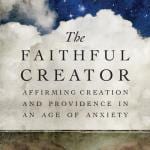Lissa M. Wray Beal.
Joshua.
The Story of God Bible Commentary.
Grand Rapids, MI: Zondervan, 2019.
Available through Zondervan.
Reviewed by Andrew Judd.
Lissa Wray Beal’s commentary on the book of Joshua is a superb and timely addition to Zondervan’s The Story of God Bible Commentary series. It will equip and embolden, I am sure, more preachers to tackle this important and often neglected part of God’s word in the pulpit.
The Story of God Bible Commentary is a promising new series from Zondervan. The Old Testament side of things looks very exciting, with general editor Tremper Longman III and associated editors George Athas, Mark J. Boda and Myrto Theocharous brought together under the watchful supervision of Zondervan’s Katya Covrett. The series kicked off with Genesis by Tremper Longman III, and has been followed to date by Daniel (Wendy L Widder), 1-2 Samuel (Paul Evans), and Proverbs (Ryan O’Dowd). Ruth & Esther (Marion Taylor), and Ecclesiastes & Song of Songs (George Athas) are on their way soon and I can’t wait. Video Study resources are appearing for many of the books. The full list of 22 Old Testament volumes to be released over the next decade includes 9 by top notch female scholars.
The commentary (like the other books in the series) is not intended to be an academic reference work, but nor is it a pure devotional work. It is a tool for serious Bible study intended for people who want to know where Joshua “stands within the story of God, the Scriptures that stretch from Genesis to Revelation” (Introduction, p 20). It is based on the text of the NIV 2011 and mercifully spares us much text- and source-critical noise by taking a canonical approach to the text. That said, Wray Beal has done a masterful job of judiciously guiding the reader through the key historical, textual and scholarly issues that come up along the way.
The Introduction is a tidy 30 pages of gold. We hear just the right amount about 1) the authorship, audience and date, 2) textual issues, canonicity and title, 3) genre and relationship to history, 4) structure, 5) historical setting, and 6) theological themes. A selective list of more academic treatments follows for those wanting a deep dive.
Wray Beal’s presuppositions are classically Christian and generously evangelical, without straying into defensive or naïve confessionalism. She is not shy to address problems dating the conquest, Ancient Near Eastern war report genres and the different models of Israel’s arrival in the land. Take this elegant executive summary of the latter:
“While none of the models fully accounts for the evidences of text, epigraphy, and archaeology, each model sheds light on some aspect of the historical reality. Israel’s emergence in the land did include warfare and conquest; indigenous peoples did join with Israel; cities and royal power were targeted by Israel; and Israel’s possession of the land was indeed gradually realized over many years.” (p 34)
In those two sentences, Wray Beal has probably saved someone about half a day of reading. (By my calculations, if 60,000 people read even just these two sentences she effectively will have saved a life.) She also deals well with the problem of violence in Joshua, arguing that with a proper understanding of key biblical and extra-biblical contexts the herem texts cannot be interpreted as comparable to modern notions of genocide. She then looks to the New Testament for the final context of these texts, arguing against their applicability to armed conflict today without conceding to an extreme non-violence reading of the New Testament. This is hard terrain expertly navigated (although personally I would have liked to see more development of the issues and themes within the Old Testament before jumping into their New Testament fulfilment.)
The actual commentary on the text of Joshua is broken into three sections. First, Listen to the Story begins with the NIV of the passage, broken into 21 sensibly divided teaching units. The text is followed by some cross references to other biblical texts as well as ANE parallels: the victories of Joshua 10, to pick an example at random, are followed by references to a handful of passages including Exodus 14, and an illuminating selection of other documents like Ten Year Annals of Great King Muršili II of Hatti. After that we get a nice selection of context pieces that might be helpful in reading the text: for Joshua 10 that means an unpacking of the biblical theme of the Divine Warrior, an explanation of who the kings of the Amorites are, and some important ANE parallels for the description of divine battle intervention.
Second, Explain the Story gives a more standard commentary on the text — not verse by verse, but divided (in Joshua 10’s case) into 5 subsections of the narrative. This chapter also includes helpful table comparing the building blocks of the accounts of each city’s taking. Significantly, this section integrates broader biblical theological reflection into the explanation, so the textual details and ANE parallels all build up to showing the theological point: Israel’s successes show that God fights on its behalf. This integration of exegesis with theological reflection is part of the unique strength of this series: textual details are never discussed in a vacuum.
The third section, Live the Story, takes that theological reflection and draws out, in the case of Joshua 10, how the dual themes of kingship and victory over enemies go on to be developed in Psalms 2 and 110, and then finally get applied to the lordship of Christ in the New Testament (especially Acts 4). There is also some discussion of God’s supernatural involvement in spiritual warfare.
What I like about Wray Beal’s commentary, and indeed about the concept for this series as a whole, is its explicit commitment to wrestling with the Old Testament texts in their canonical context as Christian scripture — while at the same time not losing sight of what makes Joshua a unique piece of the broader picture. This commentary will serve preachers as a guide into the text, perhaps in conjunction with one other more technical commentary. Individual readers and small group leaders will also benefit greatly from the context it provides and the encouragement to read, understand and apply challenging texts in a thoughtful, Christian way.











